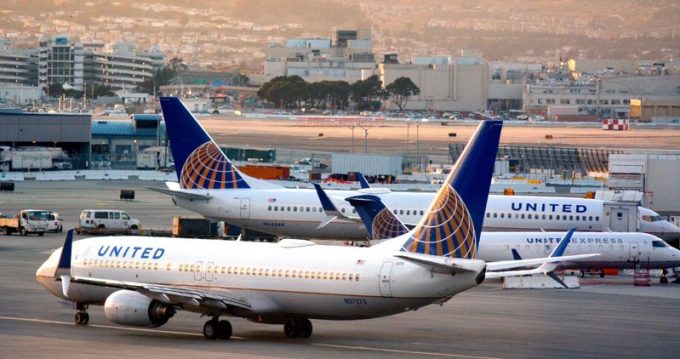US mega-airlines grow cargo volumes, but miss out on ecommerce boom
The three US mega-airlines – Delta, United and American – expanded their cargo traffic in ...
TFII: SOLID AS USUALMAERSK: WEAKENINGF: FALLING OFF A CLIFFAAPL: 'BOTTLENECK IN MAINLAND CHINA'AAPL: CHINA TRENDSDHL: GROWTH CAPEXR: ANOTHER SOLID DELIVERYMFT: HERE COMES THE FALLDSV: LOOK AT SCHENKER PERFORMANCEUPS: A WAVE OF DOWNGRADES DSV: BARGAIN BINKNX: EARNINGS OUTODFL: RISING AND FALLING AND THEN RISING
TFII: SOLID AS USUALMAERSK: WEAKENINGF: FALLING OFF A CLIFFAAPL: 'BOTTLENECK IN MAINLAND CHINA'AAPL: CHINA TRENDSDHL: GROWTH CAPEXR: ANOTHER SOLID DELIVERYMFT: HERE COMES THE FALLDSV: LOOK AT SCHENKER PERFORMANCEUPS: A WAVE OF DOWNGRADES DSV: BARGAIN BINKNX: EARNINGS OUTODFL: RISING AND FALLING AND THEN RISING

United Cargo is calling for increased, industry-wide collaboration to help governments and regulators recognise the importance of air cargo and solve the issues restricting the sector’s growth.
The comments come as the industry gears up for what is expected to be a strong peak period following the best six months air cargo has had in seven years.
President of United Cargo Jan Krems told The Loadstar airport infrastructure and weak capacity in certain markets would be tested “to their limits” during this year’s peak.
“We need to collaborate more than ever to convince governments of the crucial contributions air cargo makes and that policies benefiting air cargo will benefit citizens and economies,” he said.
“The more we speak with a loud and unified voice, the better chance we have to get the support we need to solve the issues that restrict our growth and impact the value proposition we offer.”
The carrier is expecting its own bumper peak season following a first-half performance in which revenue and volume growth hit double-digits.
Volumes increased 21% for the six months to June, leading to an 18% upturn in revenues to $474m, while overall group profits surged 39% to $818m.
Mr Krems said: “We had concerns about the always-uncertain geopolitical climate, but our most optimistic team members did not predict the strongest first half air cargo performance since 2010.
“And since demand growth has exceeded our expectations so far, we are preparing for a very strong peak – maybe comparable with the peaks air cargo once regularly experienced.”
Furthermore, added Mr Krems, a change in market factors was pointing towards the strong demand for air freight being more than just a “one-off” phenomenon.
“Expanding consumer economies in emerging nations are a positive for air freight, and many of the products in demand – pharmaceuticals for example – are best transported via air. We also think that the value proposition air cargo offers customers, as an industry in competition with other modes, has substantially improved.”
Part of this growth has been tied into the ever-increasing e-commerce segment, which Mr Krems feels confident will become even more important for the carrier in the future.
But he noted the effect of e-commerce on United’s business was dependent on the carrier’s “willingness” to make the changes necessary to take advantage of the market in the long-term.
“We have the resources – route structure, capacity, operations and expertise – to deliver solutions that satisfy these customers and those who sell to them,” he said.
“And we’ve proven in the past, with pharmaceuticals for example, that we can adapt our processes to fulfil evolving needs.”
Comment on this article